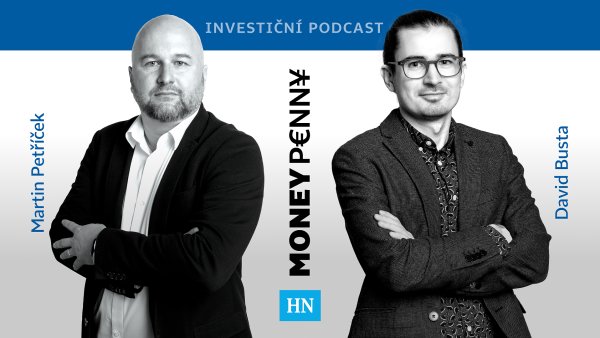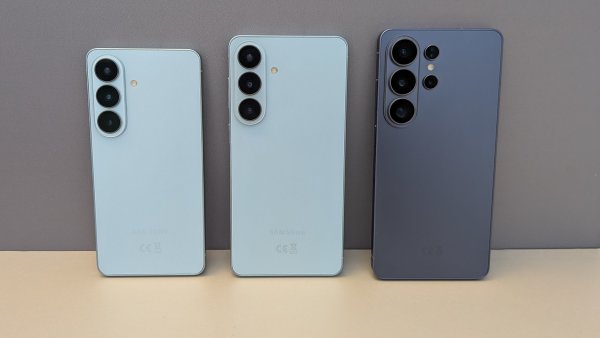Prague is not necessarily a glamorous place, at least not in the garishly obvious ways of London or Hong Kong. There are no towering skyscrapers climbing their way into the cityscape, or stores that stay open past 6 P.M, but Prague finds its own way.
Somewhere, through the gaggles of tourists and towering, almost intimidating Neo-Gothic Cathedrals, is the local side of Prague. There the mothers slowly push their children in strollers through large sprawls of green grass and young couples share secretes over cappuccinos. There the beer is cheap, and contrary to popular stereotypes, the people are happy. And there I can so easily feel at home.
Being able to feel socomfortable in such a superficially different place from New York is what surprised me most about Prague. The winding streets, that some people may find daunting and lonely, have a quiet character that makes me feel safe. I could walk from the Old Town Square and see the astronomical clock to the rushing Vltava River, not once worrying about crime. A small smile and Dobry Den are all thats needed to put a smile on a shopkeepers face, and though the service is slow, you’re not treated as an encroacher— you’re a caring explorer, and Czech people are not shy to open and share their easy-going lifestyle with people who are willing to adapt.
It is amazing how easy it is for somewhere so different to feel like home, and somehow, first slowly, and then very suddenly it feels so hard to fathom leaving.
Here's what some of my fellow American classmates think:
Robyn Cho:I grew up rarely feeling uncomfortable because all that surrounded me was so familiar. I could only dream of exploring outside of my secure bubble, beyond the known--the thought of venturing away from the contentment of home frightened me. Sometimes, though, one stumbles upon those impulsive moments when they make rash decisions, and for me, it was applying to study abroad in Prague. In that moment, being uncomfortable was appealing. The kind of uncomfortable that exposes one to novel experiences and shatters the lens he/she looks though, forcing one to take a different perspective.
From the stern faces rarely reciprocating my awkward smiles, to the passionate public displays of affection, and the abundant beer culture and nightlife, Prague took me by surprise and undeniably made me feel uncomfortable because everything was so unusual. In America, smiles are usually interchanged, public displays of affection are normally discreet, and although there is also a rich nightlife, alcohol and the “party” culture are still considered somewhat taboo. Many of these changes, though, were pleasantly uncomfortable. For example, while wandering around the city, I got lost many times; the usually inexpressive locals were extremely kind and helpful in assisting me to the correct metro or tram stop.
Altogether, Prague is filled with an immense amount of cultural differences, that intensifies the uncomfortable. Nevertheless, I am finding comfort in the uncomfortable as I become more accustomed to the Czech ways. Sometimes one has to delve a bit further and become uncomfortable because pushing oneself to go beyond the known can be pleasantly surprising.
Clay Attig: Coming to Prague is, without a doubt, a big transition for a lot of people. Aside from the obvious things like learning a new language and dealing with a foreign currency, there are a lot of different nuances to the Czech way a of life that might confuse a lot of people, or strike them as “odd.” For me, the things I find the most interesting are little quirks that I come across that keep me on my feet from day to day.
Let’s start with my house. The first couple of days, it took a lot of brain power just to be able to get in and operate it. Even the smallest things, like door handles, are foreign to me. Back home, you put the key in the door, turn it, pull down on the lever or turn the knob, and you're in the house! I found to be a very different story here. In Prague, all of the exterior doors have solid handles, requiring a key whenever you want to get in, and whenever you need to lock it. Also, with interior doors, you need to turn the doorknob just to shut the door. At home, I can just gently push a door shut, and it latches automatically.
The windows also took a lot of getting used to. Back home, windows only open in one direction. You flip the latch, and pull it open. Czech windows take a little more…engineering. The windows in my home-stay open in two directions: from the top, and at the side, requiring you to remember different handle positions to open the window. This is not a big deal, but just something I found to be quite interesting about Prague.
For me, it’s the little things that provide the most culture shock.
Darbus Sinjem: Coming from America to the Czech Republic I was expecting some things to be different, such as the way people talk and dress, but I never thought to look at restaurants as the biggest cultural difference. When I first entered a restaurant here, it with my Czech roommate, so he ordered everything for our table and I didn’t really notice any difference. The one thing I did notice at the end was the way you paid your bill, which I understand now but it still baffles me in some ways. One of the major differences is that in the Czech Republic, you can hardly ever pay with a credit card unless you are lucky enough to go to a place with a card reader. Even then, the staff seems reluctant to take cards. Next, the way Czech tipping works would be considered rude to Americans, but it seems just common culture to only leave a few korunas for decent service and if you had a bad service, none at all. Back home in America, it is customary to tip the waiting staff at any establishment around 20 percent and if you had very lousy service I might drop it to ten but it is very uncommon to have someone to tip nothing at all.
The last thing I have noticed is the lack of attention the waiting staff gives to you. Here in Prague, the waitresses and waiters seem to only visit your table around two to three times during a meal; back home, when I am waiting on a table, I usually do double to triple that because I think the U.S. restaurant industry strives for excellent customer service and that is something we Americans value highly in our society.
Joel Thom: Upon my arrival in Prague, I noticed the abundance of bars and pubs on seemingly every street corner. Since almost everyone that I know at home who had already visited Prague told me of the fantastic alcoholic beverages that existed here, I came here expecting this. However, what shocked me was the drinking culture in Prague. While I confirmed the fact that Czechs like to drink throughout the day, for the most part, they truly don't drink in excess. Back in the United States, the youth cannot legally drink until they are 21 and in many cases, they start drinking excessively in college a few years before this sacred day when alcohol becomes accessible.
Here in Prague, youth can drink at 18 though from what I have heard they usually tend to start much earlier than this. I think that easing teens into drinking at an early age creates healthier drinking habits in young adults, and the Czech Republic provides evidence of this. I thoroughly enjoy hanging out at bars in Prague and speaking with the locals (who speak English) and I don't seem to run into "drunks” quite as often as I do in the US. I enjoy the difference in the drinking culture and think that the "social drinking" environment that exists in the Czech Republic is much healthier and at the same time more enjoyable than the culture that exists for me back at home.
Jordana Norry:According to UNICEF, approximately seven hundred and eighty million people worldwide lack access to an improved water source. One of the most interesting yet annoying things about Prague is the lack of free tap water. Restaurants make it nearly impossible to stay hydrated. Even when someone is willing to spare the change, the serving size is quite miniscule. Perhaps there may be economic benefits to charging for water, but it seems quite silly, especially when the tap water is perfectly clean, drinkable, and available. Tap water may not be for everyone, which is why there are alternative options, but this should not infer the removal of plain-old-original tap.
The other fascinating aspect of the drink menu is that alcoholic beverages, such as beer and wine, are cheaper than water. This would never happen in America, but hats off to Prague for creating a relaxing drinking environment to help relieve some post-work stress. The only negative implication from this is that it then becomes even more ridiculous for a parched girl to order some water.
Being in Prague for almost a month I think I will be quite all right if this drinking situation remains to be my largest problem. After all, who minds replacing water with a glass of wine every now and then? I guess part of integrating into Czech culture simply entails being thirsty a little bit more often.
Jelani Spencer-Joe: Although I’ve lived in New York for my entire life, I’ve welcomed Prague’s drastically different culture. The things that have surprised me the most about Prague vary from how the dogs independently walk alongside their owners to the way you’re supposed to tip waiters.
When it comes to food, I can get a meal for much cheaper than I would in New York, but when I ask for water, I don’t get the usual, free tap water with a lemon in it, I get bottled water that I have to pay for. If I do ask for tap water, I get it in a small glass and with a disappointed stare from the wait staff. In New York, most of the businesses that I spend my money at are part of a larger corporation and because of that, I’m used to paying for everything with my credit card. In Prague, most of the businesses are locally owned and don’t take a credit card, so I have to pay with cash. One of the most enjoyable things is to be able to sit in a restaurant and not have a waiter breathing down your back and waiting for you to pay, they prefer you to fully experience your meal and conversation and have you ask for the check.
When it comes to friends, it seems as though dogs are put on a level in the hierarchy of family and friendship. The dogs here are family, always at their owners’ side unrestrained, like a child would. They’re independent and obedient, unlike American dogs. They listen to commands, come when they’re told, and follow all directions. If you don’t have a child in Prague, you most likely have a dog or both since it seems as though the domesticated animals are not only an accessory, but also a family companion.
Prague has surprised me with everything it’s had to offer so far. From the quiet tram system to the large support that local businesses have to the childlike dogs, it’s a place where the different culture is a nice change from the fast-paced New York that I’m used to.
Brittney Camacho: What surprised me most about Prague since I have been here has been the clean and quiet public transportation system. For the most part, all the other metros, buses and trams I’ve been on in other places such as New York, Denver and San Francisco have been loud and uncleanly. In Prague, everyone is always quiet and keeps to themselves while going from place to place on the tram or metro. Morning bus rides in America are filled with people blasting music from their headphones so loudly that you can still hear it from feet away; here, I feel like if I give someone as much as a smile while riding the metro to class the most I’ll get is a cold glare or a turned head.
But the one aspect I find the most positive is the how clean everything is. Usually when I use the subway while visiting friends and family in New York theres always a more than likely chance that I’ll spot some scattered trash or more unpleasant types of “litter’ that I don’t even want to divulge. It is extremely refreshing to see how well the metro stations are taken care of here. I don’t use the public transportation system at home in Colorado very much but if it were as fast, reliable and clean as the one here in Prague I would sell my car in a second.
Noor Gill: There are a lot of things that I could address about what surprised me about Prague and Czech people, from the abundance of off-leash dogs to the many unspoken rules of public transportation, but I don’t think these little differences shocked me as much as they should have.
What shocked me more, was how much you, the people of the Czech Republic, wanted to know what shocked me. I’ve never before been asked so many times what I thought of a specific place and it’s people. One Czech man that I met, right after introduction, immediately jumped into the question of “what do you hate about Czech people?” and when I couldn’t come up with a sufficient answer he seemed oddly disappointed.
Sure, Czechs don’t smile as often as Americans, a trait discussed more than anything else, but there aren’t as many dirty looks given as in the United States. And if I’m ever craving the forced expressions of pleasantry that I’m used to from back home, I can always go into the nearest McDonald’s and order fries. I’m sorry to disappoint, but the weirdest thing about you, is how much Czechs want to talk about it.
This piece was also edited by Sarah Mae Alcorn.
 Přidejte si Hospodářské noviny
mezi své oblíbené tituly
na Google zprávách.
Přidejte si Hospodářské noviny
mezi své oblíbené tituly
na Google zprávách.
Tento článek máteje zdarma. Když si předplatíte HN, budete moci číst všechny naše články nejen na vašem aktuálním připojení. Vaše předplatné brzy skončí. Předplaťte si HN a můžete i nadále číst všechny naše články. Nyní první 2 měsíce jen za 40 Kč.
- Veškerý obsah HN.cz
- Možnost kdykoliv zrušit
- Odemykejte obsah pro přátele
- Ukládejte si články na později
- Všechny články v audioverzi + playlist





